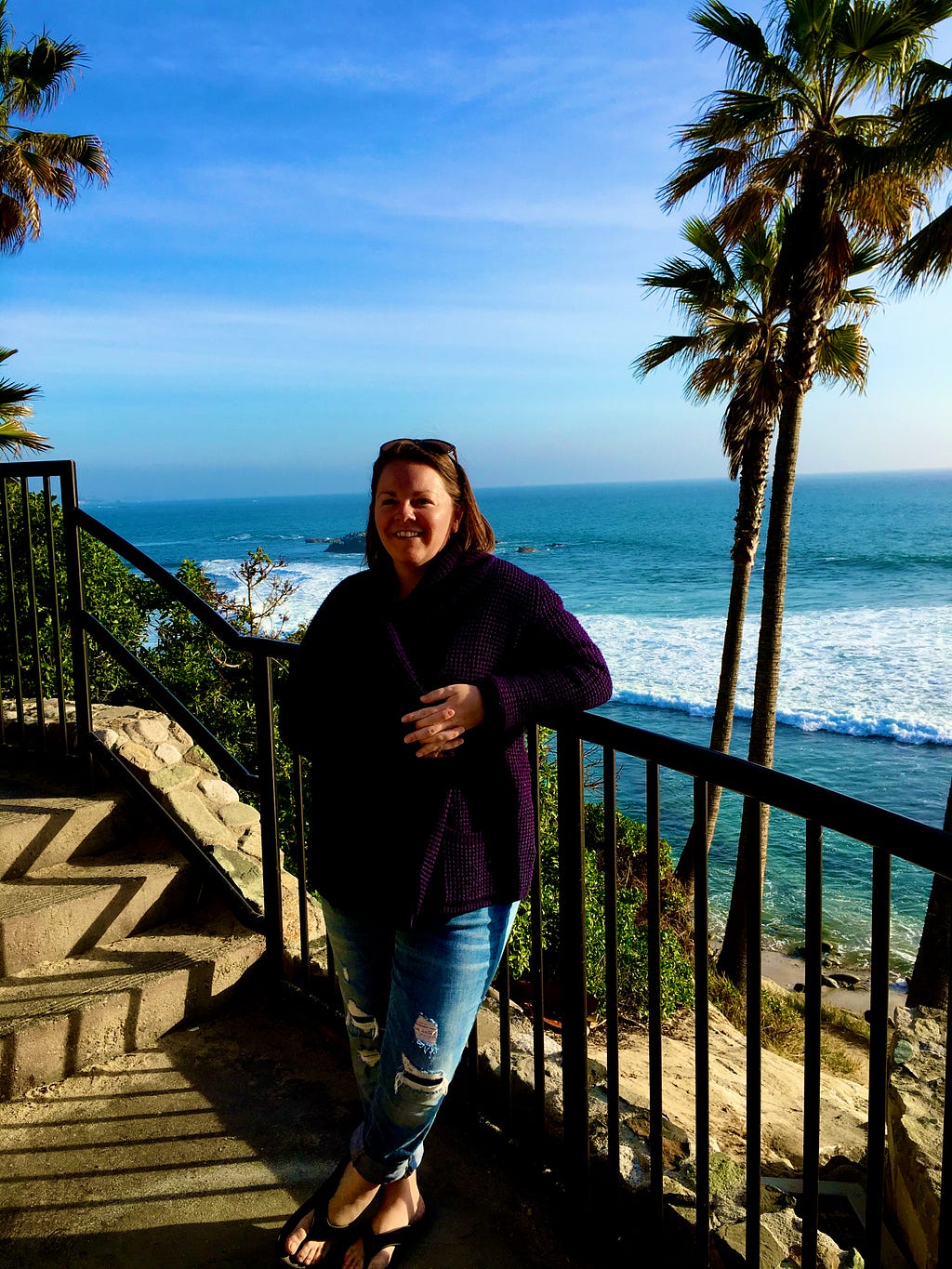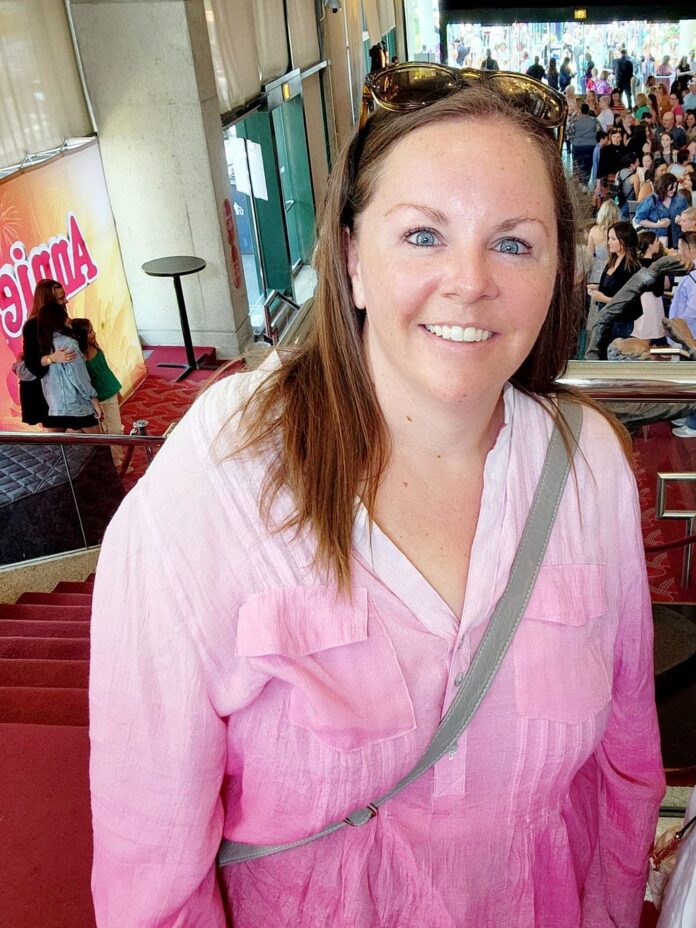An Interview With Chad Silverstein
Know when to say no, know when to say yes.
We are starting a new interview series about the world of entrepreneurship beyond the classroom — a realm where theory meets grit, and education meets real-world challenges. We want to hear about critical business wisdom that often goes unspoken in academic settings. I had the honor of interviewing Tracy McHugh.
Tracy was raised in the suburbs of New Jersey. From an early age, school wasn’t where she excelled, or her interests lay. As an adult, she realized she loves to learn and take classes, but it was the being talked at vs. experiencing things she didn’t love as well as learning about theories instead of real-life skills to help pick a career and flourish in adulthood.
Thanks for being part of this series. Let’s jump in and focus on your early years. Can you share who was your biggest influence when you were young and provide specific examples of what you learned from them that helped shape who you’ve become and how you live your life today?
First and foremost, my parents. They gave me life, my basic needs and then some, and I was provided education, guidance, and love.
But thinking out of the box, I would say Lucille Ball was my biggest influence as a child but wasn’t aware at the time that she was so influential. When I was little, we would watch reruns of I Love Lucy over and over again. Most little kids around my age had teen bop magazine posters up around their room of the cutest tween actor. I on the other hand had posters, plaques, and memorabilia around my room of Lucille Ball.
She was a boss before women bosses were a thing. Not only did she prove you could do it all, but you could be hilarious, goofy, beautiful, smart, driven, a perfectionist, and so many other things, all at once. When there were rumors that her husband was cheating on her and was an alcoholic, she didn’t just fall in line. She knew her worth and what she would tolerate, she stood up for herself and stood on her own two feet when the world was watching something so private. Upon their divorce, Lucy bought Desi out of their production company, Desilu, and ran it herself for many years thereafter.
As a kid, I was very shy. It took be to high school to come out of my shell. When I realized I had decent comedic timing and could use that to my advantage, it was what I led with in many aspects of my life. Humor has made me feel good and made lasting memories of laughing until we cried. But humor has also helped in tricky moments when you may not know what to say, how to convey something or get out of a sticky situation.
Staying on the topic of influence, who has been your biggest catalyst more recently and what can you share that you’ve learned from them that led you to making changes in your life?
The first thing that pops into my mind with this question isn’t just one person. Since the pandemic I really got into reading. I rotate between different book genres with each new read. Autobiographies by experts in their field, fiction novels that spark my imagination, historical pieces to learn from the past, and self-help books to think outside the box. In 2023, I am on target to have finished about 180 books by the end of the year and they have all added to shaping my mind and my life.
In this interview series, we aim to reveal what seasoned entrepreneurs wish they had known when they were starting out and capture what the textbooks and college professors left out.
I went to college in the early 2000’s to a liberal arts university, so my education was a little more general. I had to take a language, history, math, and several other general studies classes in addition to my major related courses. While that makes you well rounded, on the other side of that I knew by the age of 18 that foreign languages and mathematics were not my strong suit and wouldn’t be something I would pursue a career in. So, this felt like a bit of wasted time not being able to explore other opportunities, courses, or internships in college. While I didn’t know what I wanted to do in college, it would have been helpful if there was more guidance for the real world.
I think what helped me get started was networking throughout my career as well as spending a decent amount of time volunteering. Volunteering in different capacities and organizations helped me identify what I did and did not want to do. Once I had a direction, having a network of contacts helped me get there. There is so much that goes into building a business and having knowledgeable people in your corner is key.
Mistakes are invaluable. Can you name one specific mistake that you made early on, and learned the most from, but wish you’d been forewarned about?
What initially comes to mind is more from when I was younger vs. during my career, but a mistake I think about is not having taken more advantage of opportunities such resources in school. Like joining more clubs, sports, activities, trips, and internships. When I was a kid, I thought that to join these groups you needed to excel at that activity. Maybe that’s true if you are trying to get a scholarship for a sport or go pro. But school is setup to have all these resources at your fingertips at low or no additional cost. When you get older it becomes more difficult to find the time, the money, or the convenient activities. If I had participated more, I may have found some of my passions sooner.
Is there a leadership myth you believed early on that you’ve since debunked through your real-world experience?
I think leadership used to be more intimidating or unapproachable. While I think there needs to be a line in the sand as there is a business to run, an open-door policy mind frame helps the growth of the employees and the company.
What’s the key operational insight you’ve gained since running your business that was never mentioned in any classroom?
The number 1 key, no matter what your business is, would be attention to detail. I happen to work in a very fast paced industry with many moving parts. It can be easy for things fall through the cracks. No matter what you do, noticing down to the smallest detail is vital for productivity.
Did college prepare you for scaling a business? What specifically was missing?
Not in the slightest. College (for me at least) was great for growing into myself as a person, exploration, and trial and error. It did provide a great foundation. But for my day-to-day in the work force, most everything I learned was from on-the-job training, advanced learnings, and networking.
Any unexpected challenges in team dynamics that your academic experience didn’t prepare you for? How did you handle it?
Much of what you learn in school is all theories, right? Being in college, acclimating to a new environment, and meeting new people with varying personalities all aid in how to deal with people. Age, wisdom, and experience are really what prepare you for unexpected challenges. When you are younger, everything feels like the end of the world because you are experiencing so many things for the first time. The beauty of getting older is when something goes awry, it’s not as devastating or scary because you have probably experienced something similar before.
Have you had to unlearn any widely-accepted business ‘wisdom’ in your journey? What was it and how did it affect your strategy?
I grew up in a very corporate family and most of my positions have been in the corporate sector as well, which is very much about order, processes, and a chain of command. While there is a time and a place for that, I have also started embodying the mind frame of nothing ventured, nothing gained. It never hurts to ask. Whether you are trying to bring change to your role or find that next opportunity, sometimes standing out and going against the grain can be surprising in a positive way.

What’s your advice for new entrepreneurs? What are your “5 Things You Won’t Learn in College But Must Know to Succeed in Business”?
1. Don’t beat yourself up.
2. Be open to pivoting and trying new things.
3. Know when to say no, know when to say yes.
4. It’s okay to scrap an idea.
5. Network as much as you can.
How do you ensure your team not just understands but embodies your business principles? Any techniques you wish you’d known earlier?
As a leader I believe in mentorship and leading by example. I also like to be clear and transparent so there is no confusion or anything that falls between the cracks.
If we were sitting together two years from now, looking back at the past 24 months, what specifically has to happen for you personally and professionally, for you to be happy with your results?
I try to live in the moment as much as I can, so there is not something specific I need or need to happen. I strive for happiness and if I am not attaining that, I try a different route.
Looking back over the last two years, what key accomplishments make you satisfied with your progress?
How I handle things. Like many people, I am a work in progress but one thing I have worked on over the last few years is how I handle stressful situations and not being so immediately reactive. Now I focus a lot of time on exercise, mediation, and mindfulness so when a situation does arise, instead of reacting I try and take a beat first.
As someone with significant influence, what’s the one change you’d like to inspire that would benefit the most people?
It’s simple and harped on a lot these days, but just being kind to people. There is so much going on in the world. If people lead more with kindness and giving some grace, many situations could be avoided or alleviated.
How can our readers keep up with your work?
My website, Chasing Wonderful, has most of my social media handles.
Thank you so much for joining us! We wish you only success.
About the Interviewer: Chad Silverstein is a successful entrepreneur with more than two decades of experience as a successful founder and CEO. He started his first company, Choice Recovery, Inc. a third-party collection agency, out of his apartment while going to The Ohio State University. He grew the business nationwide and represented more than 10,000 clients before selling the company on his 25th anniversary. His second venture, [re]start, is a career development platform that helps people find new jobs, launched in 2013 as a division inside his agency. [re]start was a catalyst to Chad’s team becoming an industry outlier after connecting thousands of people to meaningful employment opportunities. His company was nationally recognized for its social impact, twice being ranked the #1 business to work for in Central Ohio. Chad sold [re]start in 2023 and is now a writer and thought leader for Authority Magazine’s Entrepreneur and Sports Editorials. He also offers an exclusive executive leadership program inside his online community at Authentic Authority.
Tracy McHugh On 5 Things They Forgot To Mention In College was originally published in Authority Magazine on Medium, where people are continuing the conversation by highlighting and responding to this story.


